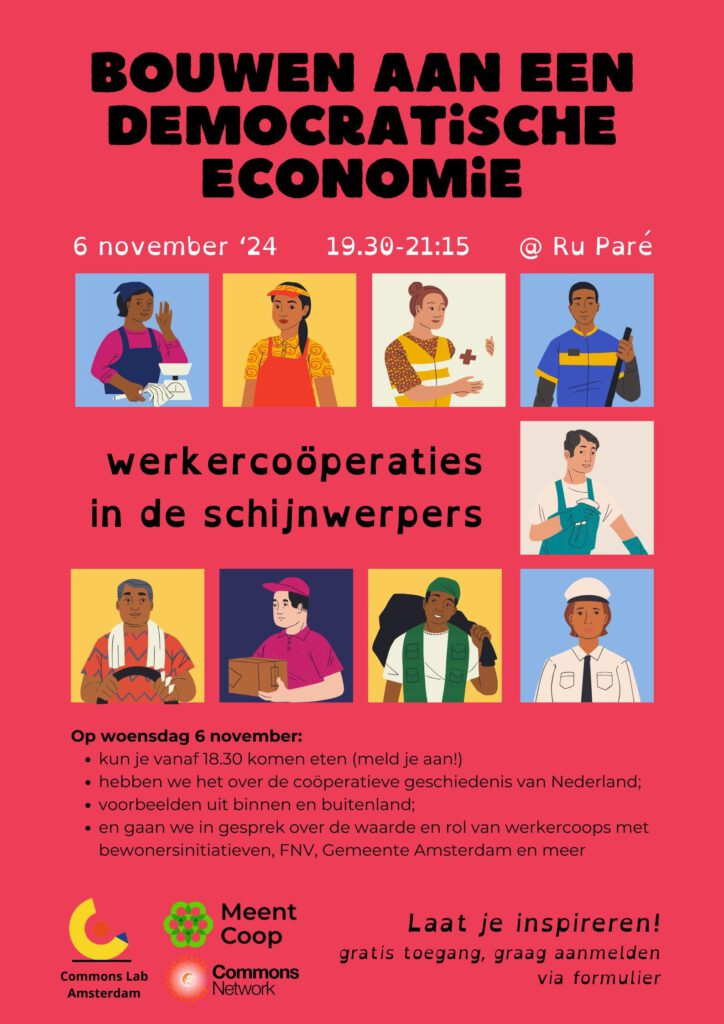Event in Dutch
On Wednesday, 6 November, MeentCoop and Commons Lab are hosting a meet-up on worker cooperatives. How can we democratize the economy? Can we create a fairer and more social system? Are worker cooperatives a key part of the solution? And how does co-ownership actually function?

In recent years, cooperatives have seen a surge, especially in sectors like healthcare, energy, and housing. People are organizing themselves to tackle the pressing challenges of our time, bypassing the traditional market and government systems. At this event, we’ll focus on a less common but powerful model: worker cooperatives.
The aim is to explore how worker co-ops can drive a shift toward a more social and democratic economy through Community Wealth Building (CWB). CWB is an economic development strategy that seeks to retain value within local communities, preventing wealth from draining away to hubs like the Zuidas or Silicon Valley. One of the ways to achieve this is by creating cooperative structures that can take on roles traditionally held by the government or private businesses.
Cooperatives come in many forms, leading to some confusion. For instance, there are consumer cooperatives where people pool resources to buy goods or services together, like Voko Mokum’s organic food collective. Some co-ops are alliances of organizations. Historically, cooperatives have had a strong presence in sectors like agriculture and insurance—companies like Achmea, Rabobank, and FrieslandCampina still retain cooperative elements but are no longer true citizen collectives. In the past decade, however, new local cooperatives have sprung up, especially in care and energy sectors, with passionate individuals forming networks that support entire communities. CWB views these local collectives as the backbone of neighborhoods and economies, generating both social and economic value. Despite this resurgence, worker cooperatives remain rare in the Netherlands.
Worker cooperatives provide goods and services in a way that’s comparable to private companies, but they’re driven by shared ownership and democracy rather than profit. So, why are they so uncommon in the Netherlands? Was it different in the past? What changed? What are the advantages and disadvantages of worker co-ops? What challenges do they face, and what opportunities do they offer? And crucially, how can we connect worker co-ops to sustainable funding streams within the context of CWB?
This meet-up will explore these questions, looking at historical trends, current examples in the Netherlands and abroad, and how we can create democratic cooperative structures to strengthen Amsterdam’s community economy.
Speakers include:
Tuur Elzinga, Chairman of FNV, Ted Howard, expert in community wealth building, Elisabeth IJmker, GroenLinks Amsterdam, and more…
Get inspired and help build a cooperative future!
Event Details:
18:30 – Walk-in & food
19:30 – 21:15: Program
Please register in advance here.
 ☰
☰